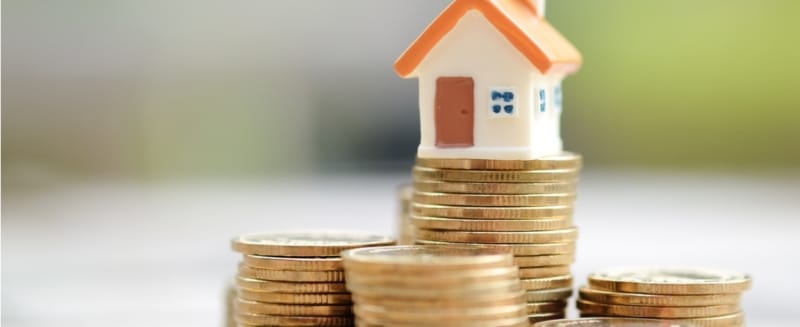Tax-free exchange on rental property, what taxes do I owe when selling? Did you purchase the home as an investment or as a primary residence?
Q: We purchased our present home in 2005 for $225,000. It was a tax-free exchange on a rental property we owned previously. We rented the current home for two years right after we bought it and have occupied it as our primary residence since the beginning of 2008.
We are looking at selling the home for $400,000. Will we owe tax on this home sale? We improved the home with a finished basement and expansion that cost $140,000 back in 2008.
A: Between your purchase price of the home and the expansion, you have about $365,000 in the home. Ordinarily, we’d say that you wouldn’t have any federal income tax (capital gains or otherwise) to pay on the sale of your primary residence where you have less than $250,000 profit on the sale ($500,000 if you are married) and you have lived in that home for 2 out of the last 5 years.
The complication you raised is that you didn’t purchase this home as your primary residence; you purchased this home as an investment property. You probably owned other investment properties previously and then sold those investment properties and ended up with this home. Back in 2005 when you went through your tax-deferred exchange of properties, you didn’t pay any federal income tax on the sale and you didn’t pay federal income taxes on the depreciation that you previously took on your investment properties.
Usually when you sell an investment property, even if you don’t make money, the IRS requires you to recapture the benefit you received through depreciation while you owned the property. If you took $100,000 in depreciation over the years, you’d owe the IRS $25,000 in recapture taxes when you sell the property.
If you had not gone through the tax-deferred exchange (also called a 1031 exchange or Starker Trust exchange), you would have paid those tax on any profit and any depreciation used. Now that you are selling the home, the IRS will want some of that money.
We can’t tell you how much money you will owe, as we don’t have the details of the old transaction. However, simply converting the home from an investment property to your own primary use and staying there is no longer enough to avoid federal income taxes.
You have one thing going for you, the rules changed at the end of 2008. For your situation, it may be that your purchase in 2005 with two years of investment use may allow you to take any profit from the sale and use your $250,000 ($500,000 if you are married) exclusion to avoid paying taxes on all of your profits. However, you may still have to pay tax on any depreciation you took while you owned your investment properties.
If your situation started after 2008, your profit would have to be split between the years you owned the home as an investment and the years you owned it as a primary residence. Again, you’d pay tax on the depreciation you took but you could shield some of the profit from capital gains taxes. Therefore, if you had actually purchased the home in 2009, kept it as an investment for two years, the new rules would require you to hold onto the property for a full five years before you could take any part of the $250,000 ($500,000 if married) exclusion for capital gains.
When you sold the home, after owning it as a primary residence for five years, you could exclude part of the profit using the ratio of the number of years the home was used as an investment to the years it was used as a primary residence. So you could use 5/7 of the $250,000 ($500,000 if married) exclusion when you sell in 2016. If your profit were $70,000, you wouldn’t pay any capital gains taxes on $50,000.
You still have one more complication, the difference between your purchase price and what you have into the home is only about $35,000, but that number is only part of the picture. You might have made a profit each time you sold your prior properties. If you bought and sold 3 prior properties before this home and each time made a profit of $30,000, you actually didn’t pay taxes on $90,000 of profit.
When you go to sell your home, you have to factor that $90,000 into the sale as well for purposes of allocating some of the profits to the two years you held the home and the five years you used the home as your primary residence.
Still this scenario isn’t bad for you and you won’t have to pay taxes on a fair amount of the money you get. Keep the amount that you had in profits from your other sales in mind as you determine how much you may owe. Since you purchased the home for $225,000 and you’re well within the $250,000 exclusion, you shouldn’t have any capital gains taxes to pay, but you might have recapture of depreciation taxes.
You should make sure you go through your numbers with your accountant or other professional that can go through each of your sales and make sure you file your taxes at that time properly.







On rental property my Mom has had for 40yrs…if she sells the property & buys more rental property (in Texas) will she have to pay captial gains?